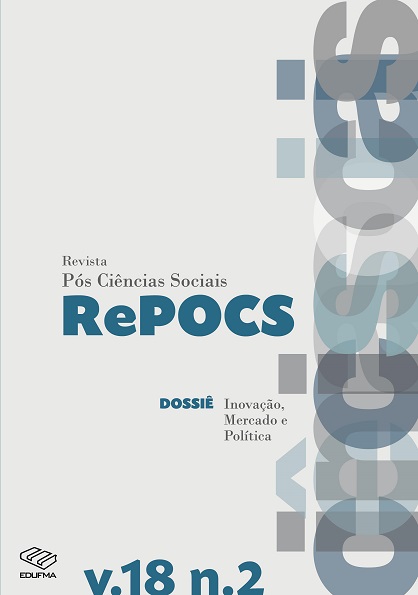MUDANÇA SOCIAL E MODERNIZAÇÃO ECOLÓGICA NO BRASIL <br/><br/> SOCIAL CHANGE AND ECOLOGIC MODERNIZATION IN BRAZIL
DOI:
https://doi.org/10.18764/2236-9473.v18n2p271-288Palavras-chave:
Agricultura orgânica, Modernização ecológica, Agricultura Familiar | Organic farming, Ecologic modernization, Family farmingResumo
Este artigo analisa as trajetórias de conversão para agricultura orgânica de agricultores familiares localizados na região metropolitana de São Paulo durante os anos 1990 e 2000. Esta conversão ocorreu sob o impulso inicial de indivíduos ligados ao movimento da teologia da libertação e depois da estruturação posterior de um mercado regional em torno da grande distribuição. O texto mostra como a integração desses agricultores em um sistema de mercado regido por lógicas capitalistas foi acompanhada, localmente, por uma profissionalização da agricultura e pela implantação de lógicas e estruturas empresariais. Mostra também como estas dinâmicas de modernização ecológica, embora contribuindo para a geração de uma nova elite rural e de novas formas de desigualdade social, parecem ao mesmo tempo poder contribuir para a manutenção da agricultura em um contexto de forte pressão urbana, para o retorno dos jovens a esta atividade e para a construção de territórios de qualidade ecológica. Nesse sentido, ele indaga se existiriam contextos nos quais a modernização ecológica seria um compromisso aceito por defensores de uma alternativa mais radical? Qualquer que seja a resposta a essa pergunta, a demonstração aqui proposta sublinha a importância de reintegrar a análise das trajetórias ecológicas agrícolas em um estudo mais geral das mudanças sociais, particularmente em seus componentes locais.
Abstract
This paper analyzes small farmers’ trajectories in converting to organic farming in the metropolitan region of São Paulo during the 1990s and 2000s. The conversion occurred under the initial push of individuals connected the movement of the Theology of Liberation and after the structuring of a regional market around large-scale distribution. The paper shows how the integration of these farmers in a market system ruled by capitalist logic was accompanied, at the local level, by the professionalization of agriculture and by the implantation of corporate structures and logic. It also shows how these ecologic modernization dynamics, while contributing to the creation of a new rural elite and new forms of social inequality, seem to also be able to contribute to the maintenance of farming in a context of strong urban pressure, to the return of
young people to farming, and the construction of territories of ecologic quality.
In this sense, it questions whether contexts exist in which ecologic modernization would be a compromise accepted by defenders of more radical alternatives? Whichever the answer to this question, the answer we propose underlines the importance of reintegrating the analysis of the ecologic farming trajectories to a broader study of social changes, mainly in its local components.
Downloads
Downloads
Publicado
Como Citar
Edição
Seção
Licença
Direitos autorais Revista Pós Ciências Sociais
Este obra está licenciado com uma Licença Creative Commons Atribuição 4.0 Internacional.


